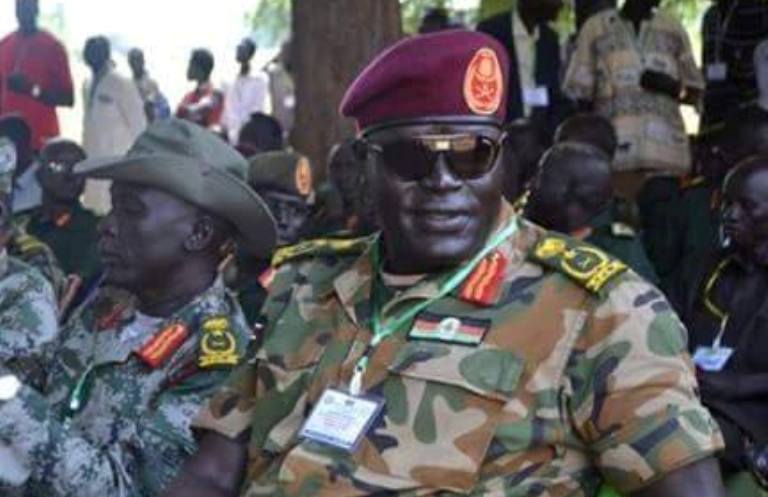SPLM-IO denies defection of Gen Johnson Olony

January 15, 2019 (JUBA) – The Sudan people’s Liberation Movement In Opposition (SPLM-IO) dismissed a recent press report claiming the defection of Gen Johnson Olony from the group as a result of his rejection of the revitalized peace agreement.
Two days ago an online news website has reported that Gen Olony rejects the peace pact because it didn’t addressee the cause of the Chollo people, and according he would not stop the war against the South Sudanese government.
Mabior Garang de Mabior, the chairperson of the SPLM-IO National Committee for Information and Public Relations, issued a statement on Tuesday denouncing the “unfounded allegations” by the “enemies of peace”.
“This propaganda is intended by the enemies of peace to arouse tribal sentiments and in particular to provoke the subjects of the Collo Kingdom who are anxious regarding the issue of land grabbing in their territories,” said Mabior.
He added that other communities in Raja, Mading Aweil and other areas share this frustration with the people of Collo Kingdom. And it is for this reason they vigilantly support the peace implementation process because it is the least costly way to resolve the issue.
Mabior was alluding to the contested 32 states federal system which would be reviewed by the Independent Boundaries Commission (IBC), in line with the revitalized pact.
“The Agwelek forces led by Gen Olony are part and parcel of the alliance that is the People’s Movement under Commander Dr Riek Machar Teny and shall together with the people, make any necessary decision. only after following the negotiated settlement to its culmination,” he stressed.
Tribal leaders of Shilluk who are the third largest ethnic group of South Sudan say the government through its 32-states system gave their ancestral territories in the Upper Nile province to the Dinka communities.
The holdout groups which reject the revitalized agreement point to need for a federal system enabling the regions to manage the land ownership and giving them enough resources to develop it without intervention from the central government.
(ST)
